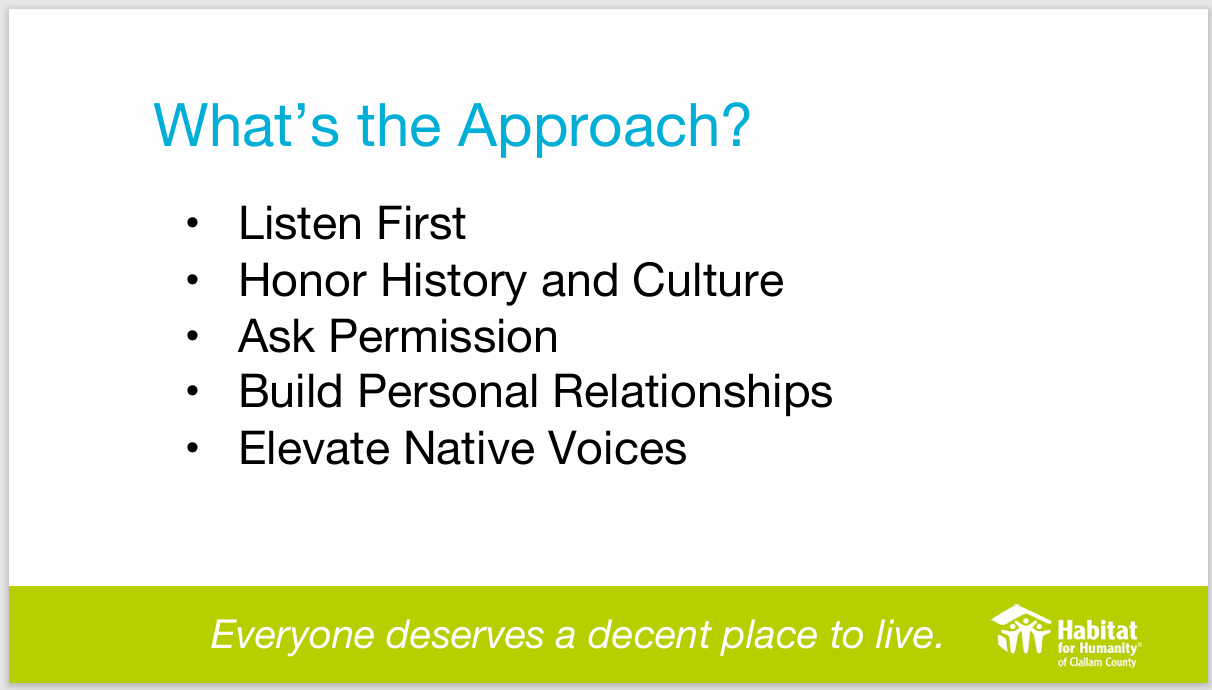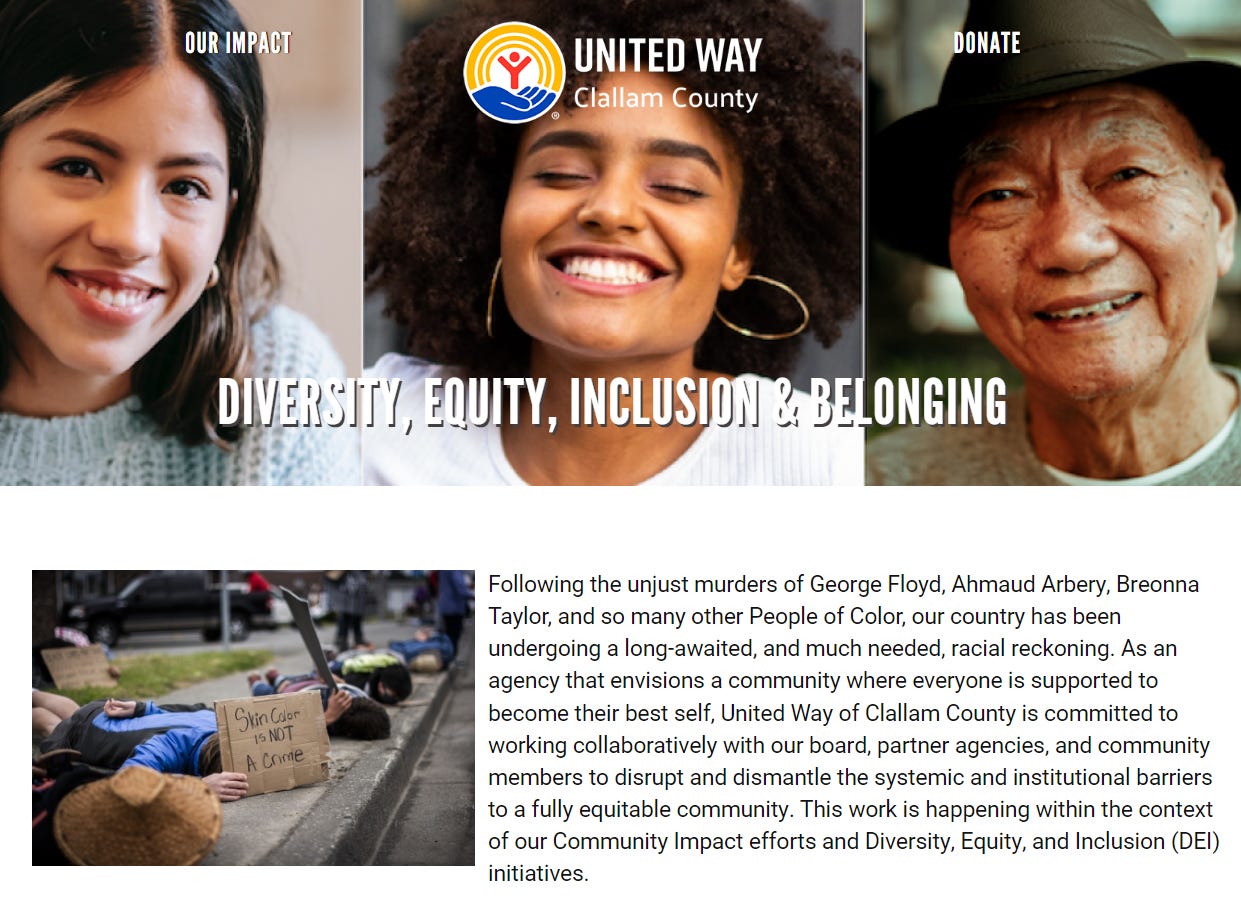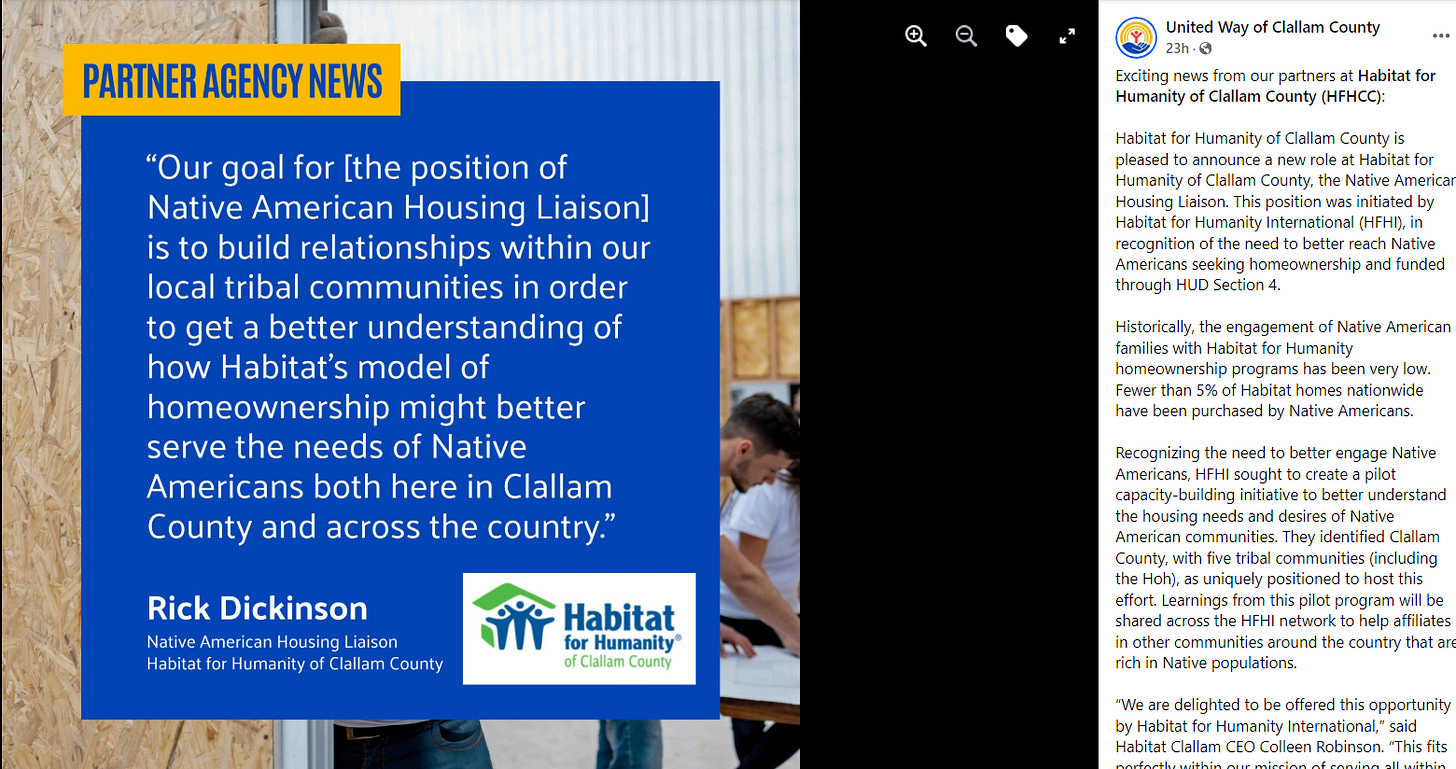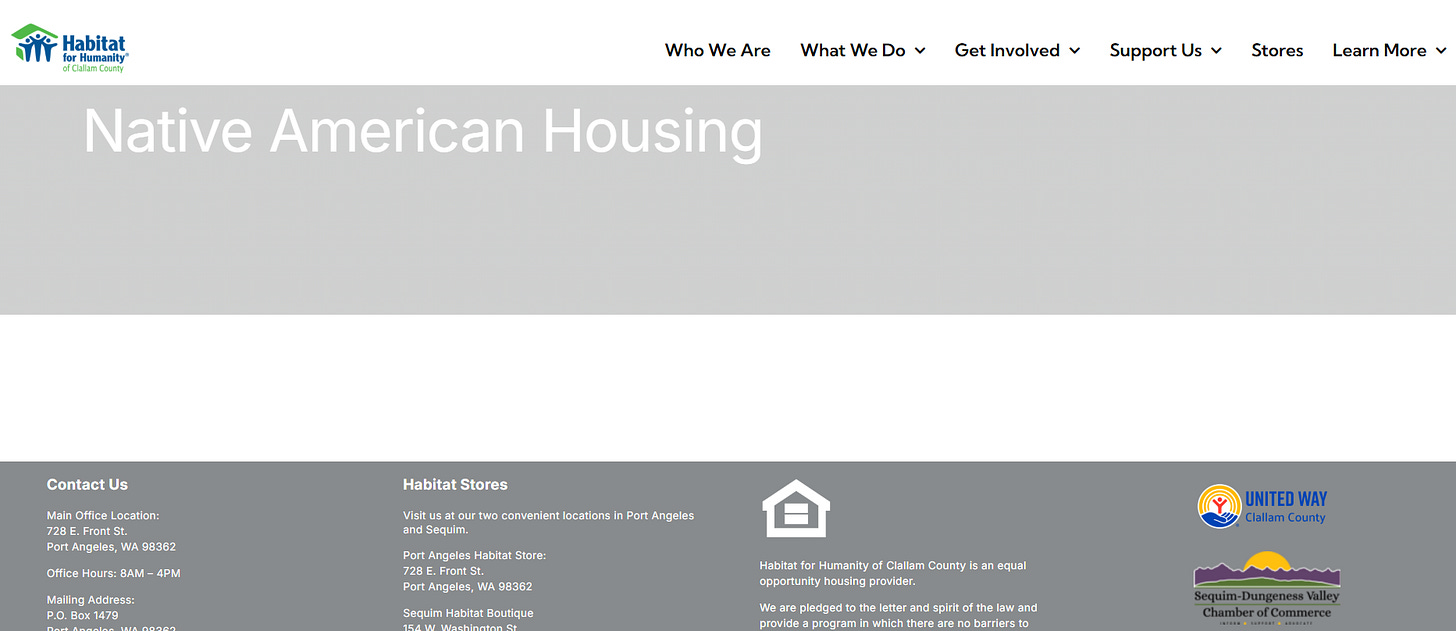Habitat for Humanity or Habit for Hypocrisy?
Equity, instructions to keep quiet, and a job description no one can see
Habitat for Humanity of Clallam County says it's making history with the creation of a "Native American Housing Liaison"—but refuses to release the job description, raising serious questions about transparency, favoritism, and the real intent behind the role. As taxpayer dollars and donor funds swirl around no-bid contracts and race-specific outreach, residents are left wondering: Is this equity, or just well-branded hypocrisy?
United Way of Clallam County proudly declares itself a champion of equity. In the wake of national racial reckonings, the organization is committed to dismantling systemic and institutional barriers to build what it calls a “fully equitable community.”
One of its partner agencies, Habitat for Humanity of Clallam County (HFHCC), recently made headlines by announcing a new position—what they claim is the first of its kind in the nation: a “Native American Housing Liaison.” The position was filled by Rick Dickinson, previously of the Center for Inclusive Entrepreneurship (CIE), a publicly funded local agency better known for awarding grants based on identity markers—such as race, gender, or sexual orientation—than on business need or merit.
Now in his new role, Dickinson aims to “build relationships within our local tribal communities” and help Habitat better understand Native housing needs both locally and nationally. His background includes service on tribal enterprise boards and similar community-facing roles—experience HFHCC says makes him uniquely qualified.
But the excitement around this role is giving way to growing public skepticism.

Despite the significance of the position—and the claims that it will shape national conversations around tribal housing—HFHCC has yet to share the actual job description. When asked, the organization flatly refused. Instead, they urged CC Watchdog not to mention Habitat at all, citing “respect for privacy” and a desire to “focus on constructive engagement.”
The lack of transparency is particularly glaring given HFHCC’s recent attempt to award a no-bid, $800,000 taxpayer-funded contract to the Jamestown S’Klallam Tribe—an effort halted after legal concerns were raised regarding violations of fair bidding laws at the county, state, and federal levels. This followed a $50,000 donation to Habitat from the same tribe, raising questions about the relationship between donations, staffing decisions, and access to public contracts.
HFHCC Vice President Danny Steiger denies any connection between the donation, the liaison position, or the proposed contract. But public confidence hasn’t exactly been bolstered by the organization's limited transparency.
Even the HFHCC website, which has a section titled Native American Housing, offers little clarity. The page is still under construction and, for now, contains only a title and a generic reminder that HFHCC is an equal opportunity housing provider. For a groundbreaking initiative, the rollout has been anything but informative.
Equity, when practiced with integrity, should be inclusive, transparent, and accountable. When a taxpayer and donor-funded agency creates a race-specific position, then refuses to reveal what that position entails, and deflects public inquiry—those values start to ring hollow.
If this program is truly about equitable access and meaningful collaboration with Native communities, then HFHCC should have no hesitation in pulling back the curtain. The public has a right to know what they’re funding, and how.
Until then, all we have are vague promises, missing details, and a lot of questions. Equity can’t just be a slogan. It must be visible, measurable, and fair—for everyone.
Last Equitable Wednesday, subscribers were asked if they had personally observed or experienced government officials attempting to silence criticism. Of 106 votes:
77% said, “Yes, I have.”
17% said, “No, I have not.”
6% were unsure.







Doesn’t surprise me that they flatly refuse to release information. I mean this must be a national secret for the position….. NOT. Yet using taxpayer funds you would think it would be required? Now that DOGE is up and running, I am seeing how these NGO’s operate and the amount of fraud, waste and abuse is overwhelming. Will Clallam County have a DOGE team at some point in time? Thanks again Jeff.
It appears that silencing anyone asking questions and seeking transparency has become a common thread among many non-profits, tribes, and elected officials. Don’t pay any attention to the man behind the curtain.